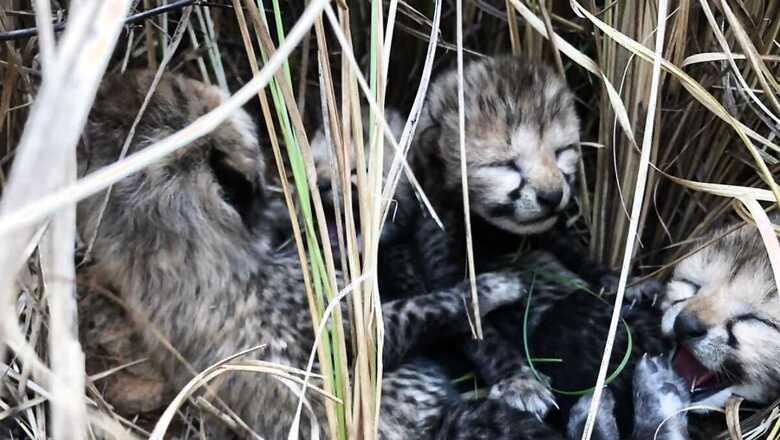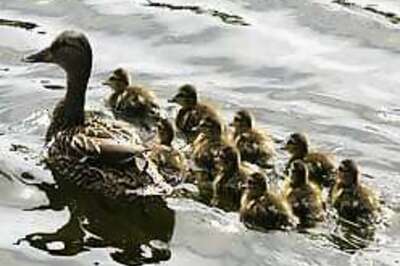
views
Just two months after Kuno National Park celebrated the birth of four cubs born to Namibian cheetah ‘Jwala’, one of them died early on Tuesday.
According to a statement issued by the Madhya Pradesh forest department, the incident was reported around 7 am. The monitoring team saw the mother cheetah ‘Jwala’ sitting with her four cubs. However, after some time, she moved from that place, and all the cubs, except one, followed her.
“The fourth one was found lying at the same spot. After waiting for some time, when the team went to examine him, they noticed that it was trying to lift his head. The veterinarians were called to start the treatment. However, the animal could not survive," read the statement.
India had not seen the birth of cheetah cubs in almost 70 years, ever since the animal got extinct. Last year, as many as eight cheetahs were translocated to Madhya Pradesh’s Kuno National Park in one of the biggest wildlife translocations till date. One of the female cats from the batch had then given birth to four cubs on March 29.
The forest department said the death should be seen as a case of “survival of the fittest’ – a term coined by British naturalist Charles Darwin. He had suggested that beings who adapt best to their environment are the ones that eventually survive and reproduce – summing up the evolution process.
“At first glance, it seems that the cub was the weakest of them all. He was the least active, and did not feed as well as the others. Such cubs do not survive for very long," say the officials.
According to the forest department, the survival rate of cubs in African countries is very low. The available literature says, only 10% of the cubs born in open forests survive – which roughly means only one out of every ten cubs live on. However, the government’s Cheetah Action Plan puts down the natural survival rate of cubs at 30-50%.
An important criterion for short-term success of the project was also that some wild-born cheetah cubs survive for more than a year. However, in the long term, the success also depends on whether then cheetahs get established as an integral part of the ecosystem with natural rates of survival (70% adults, 30-50% cubs/juveniles) and reproduction.
India now has 17 adult cheetahs and three cubs at Kuno National Park. The animals classified endangered by IUCN were translocated from Namibia and South Africa in two batches in September 2022 and February 2023, respectively.




















Comments
0 comment